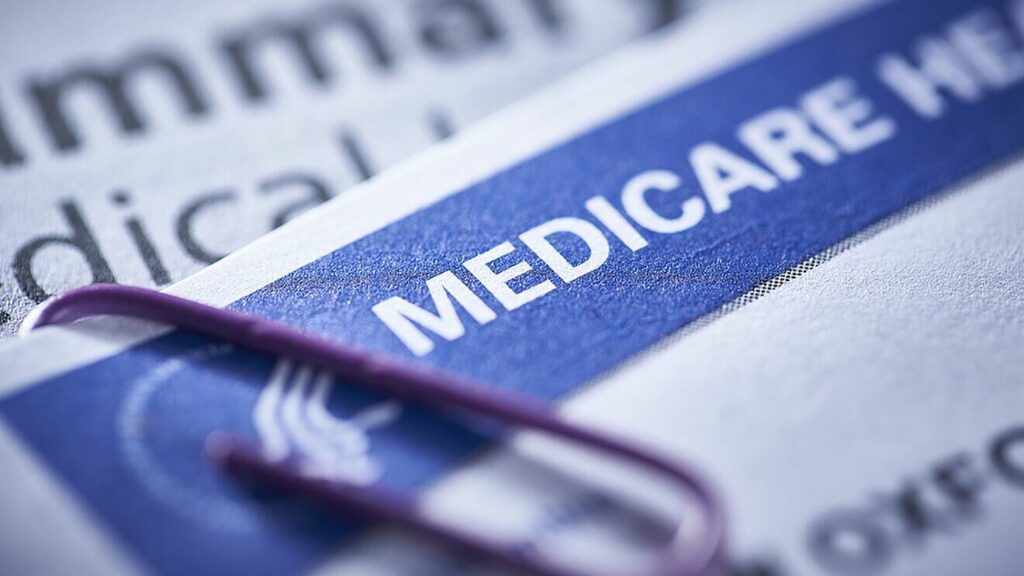Medicare’s payment policies for certain dental procedures and other payment and policy changes are reflected in the 2023 Medicare Physician Fee Schedule Final Rule, which was issued in November 2022. This summary summarizes the changes to dental payment and coverage included in the final rule, discusses the impact on Medicare and beneficiaries, and clarifies current law regarding coverage and payment for dental treatments under Medicare and the rationale for changes to the present policy.
For example, beginning in 2023, Medicare will pay dental or oral examinations before organ transplant surgery, cardiac valve replacement or valvuloplasty operations, and dental or oral examinations before treatment for head and neck cancer. But it doesn’t mean that more people will be able to afford dental treatment or that Medicare would spend more on dentistry for everyone.
Medicare coverage of dental services is generally very limited
Medicare has not provided coverage for dental services except in very limited instances since it was first established in 1965. Medicare recipients often avoid necessary dental care because of inadequate or no dental coverage. In 2018, 47% of Medicare recipients did not receive dental care and many of those who said they were unable to afford it cited cost as a primary factor. In 2018, dental patients’ out-of-pocket expenses averaged $874. Inadequate dental care can worsen preexisting disorders like diabetes and heart disease, and postpone the diagnosis of life-threatening illnesses. While Medicare does not pay for routine dental care, many Medicare recipients have access to it through other means. Nearly half of all Medicare recipients are enrolled in Medicare Advantage plans, and nearly all of them offer dental coverage as an extra benefit, though the extent of coverage varies by plan.
Medicare cannot cover “…services in connection with the care, treatment, filling, removal, or replacement of teeth or structures immediately supporting teeth” under current law, under Section 1862(a)(12) of the Social Security Act. Inpatient hospital services “in connection with the provision of such dental services if the individual, because of his underlying medical condition and clinical status or because of the severity of the dental treatment,” is an exception to this rule.
The Centers for Medicare & Medicaid Services (CMS) has ruled that dental care is a covered “incidental and necessary aspect” of Parts A and B of Medicare. Medicare now covers a variety of dental care services, including but not limited to:
- surgical excision of a tumor (for reasons other than dentistry) followed by ridge rebuilding;
- tooth removal before radiation therapy for malignant tumors; and
- As part of the pre-operative evaluation for kidney transplantation, an in-patient oral or dental exam is performed.
Patients’ rights advocates, dentists, and lawmakers have all urged the Centers for Medicare & Medicaid Services (CMS) to exercise its discretion and cover more dental care for people who need it. It has been brought to CMS’s attention that its interpretation of Section 1862(a)(12) of the Social Security Act has been “unnecessarily restrictive,” and as a result, may contribute to inequitable care, especially for older adults who are at high risk of poor oral health, which can exacerbate and complicate the treatment of other medical issues. Even more, these groups have argued that there are more clinical circumstances in which dental procedures are closely tied to the clinical success of a service that is covered by Medicare Parts A and B.
In the 2023 physician payment final rule, CMS clarified its interpretation of the statute, codified certain payment policies, defined new scenarios where payment can be made for dental services, and outlined a process for more medically necessary dental services to potentially be covered under Medicare.
The final rule clarifies CMS’s interpretation of when medically necessary dental services can be covered and codifies certain payment policies
By publishing this final rule, CMS has made it clear that Medicare will pay for dental services under Parts A and B “that is inextricably linked to, and substantially related and integral to the clinical success of certain other covered medical services,” regardless of whether they are provided in an inpatient or outpatient setting.
Dental services are allowed to continue under the regulation because they are “inextricably linked, and substantially related, and important to the therapeutic effectiveness of an otherwise covered medical service,” as the rule explains.
- oral or dental checkup before renal organ transplantation;
- surgical repair of a dental ridge following and in conjunction with tumor resection;
- jaw reduction surgery that involves wiring or immobilizing teeth;
- tooth removal before radiation therapy for malignant tumors; and
- dental splints should only be used in conjunction with conventional medical care.
Medical and dental professionals are required to coordinate care for Medicare to pay for dental services under Parts A and B, as stated in the final regulation. Important dental procedures, like X-rays, anesthesia, and operating room use, will now be fully covered by Medicare thanks to the rule’s finalized policy.
Medicare’s current payment to dentists is based on the physician fee schedule, and this is true even for the restricted conditions in which Medicare pays for some dental treatments. The Medicare claims processing is handled by regional Medicare Administrative Contractors (MACs), who set the rates for treatments not included in the Medicare fee schedule. The final rule maintains this policy by giving MACs discretion over whether or not to pay for dental treatments and the number of such payments in situations not otherwise covered by the rule.
The final rule defines new clinical scenarios for which Medicare payment can be made for dental services
To establish whether additional dental services are crucial to the clinical success of other covered care, CMS reviewed clinical evidence. In light of this research, Medicare Parts A and B coverage can be provided for:
- Before any organ transplant operation (not just renal organ transplant surgery), or before heart valve replacement or valvuloplasty procedures, a thorough workup should include a dental or oral examination, including any necessary therapy (beginning in 2023).
- the in-patient or out-patient dental or oral exam that is part of a full workup before or concurrent with Medicare-covered head and neck cancer therapies (beginning in 2024).
- CMS did not finalize payment for dental treatments in the context of immunosuppressant therapy, joint replacement surgery, or other surgical procedures, although indicated in the proposed rule that such services might be allowed.
To evaluate whether additional dental treatments should be considered for Medicare payment in future years, CMS will employ the Physician Fee Schedule annual rulemaking process. CMS will make this decision after carefully reviewing the medical literature, research studies, clinical guidelines, and generally accepted standards of care for the proposed clinical scenario, among other supporting data.
Impact on Medicare beneficiaries and payments
According to CMS projections, these adjustments will neither lead to a sizable rise in Medicare spending nor the number of Medicare recipients who have access to dental care that is covered by the program. CMS anticipates that in 2024, Medicare will cover approximately 219,000 more dental services than it does now, placing them ahead of organ transplants, heart valve replacement, valvuloplasty operations, and treatment for head and neck cancers. During the 18 months from June 2018 to December 2019, Medicare paid for dental services for about 186 patients, most commonly for tooth extraction in patients undergoing radiation therapy. Beginning in 2024, CMS predicts that, depending on consumption, the additional yearly total cost will be between $230,000 and $3 million.
Discussion
Advocates for Medicare and Medicaid Procedures (CMS) beneficiaries and others have long urged the agency to elaborate on what it means by “medically necessary dental services.” Part of the motivation behind this final rule is to allay fears that Medicare was being too picky about which dental procedures were eligible for coverage. This rule’s completed revisions make it clearer which dental services Medicare will cover and leave the door open for future coverage of dental services in other clinical circumstances when they are inextricably related to medical care.
While this rule does expand Medicare coverage for some dental services, it is important to note that it does not include coverage for regular preventive services like checkups and x-rays or coverage for more substantial services like root canals and dentures for all Medicare recipients. H.R.3, the Elijah E. Cummings Lower Drug Costs Now Act, passed the House of Representatives in December 2019 for $238 billion over 10 years and included a provision to add dental coverage to Medicare, but the Senate did not take up the bill for a vote. While the House enacted a version of the Build Back Better Act in November 2021, it did not include a provision to add a dental benefit to Medicare, and President Trump vetoed the Inflation Reduction Act in August 2022, in part because of worries over the expense of this provision. Individuals with Medicare who do not have access to alternative dental coverage options, such as private insurance, will continue to incur significant out-of-pocket expenses for dental care, especially if substantial treatment is required until Medicare’s dental coverage is significantly expanded.








